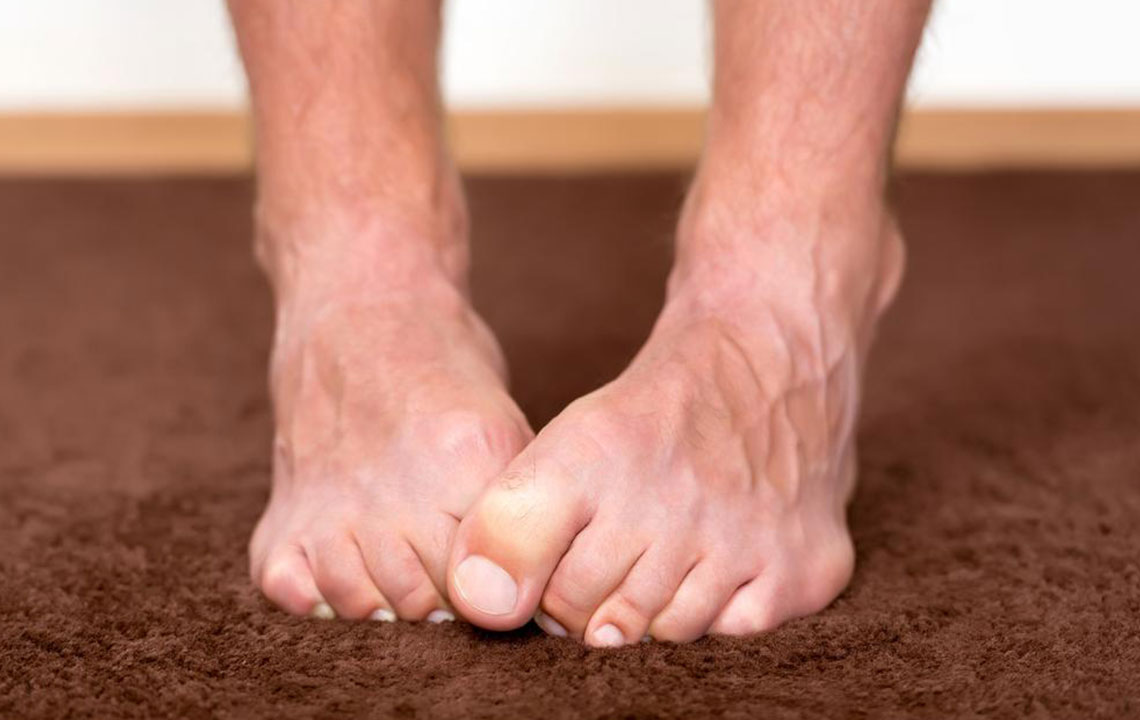Neuropathy Foot Pain – Symptoms, Causes, Treatments and More

The nervous system is responsible for control and coordination of the body. It connects all the nerves in the brain and spinal cord to other parts of the body such as face, feet, legs, hands, and face. Signals are carried by the nerves to the brain.
Peripheral neuropathy disorder causes the dysfunction of the nerves. Damaged nerves don’t function properly and even transmit the pain signals to the body. Infection, injury, and genetic disorders cause the peripheral neuropathy.
Peripheral neuropathy disorder affects the three nerves an they are sensory, motor and autonomic nerves. The sensory nerves connect to the skin. Autonomic nerves connect to the internal organs, and the motor nerves are connected with the muscles. This problem impacts the normal functioning of these nerves.
Symptoms of the Neuropathy Foot Pain:
- You will feel tingling sensation and pain in feet
- Numbness
- Thin Skin
- Constipation
- Decrease in the blood pressure
- Diarrhoea
- Excess Sweating on foot
- Sharp pain in foot
- Feeling of shock in the foot
- Heavy feeling in leg causing locking of legs
Causes of the neuropathy foot pain
Different factors cause the neuropathy disorder. If you have a family record of the disorder, you may likely have the problem. Apart from other causes of the foot pain are mentioned below.
Chronic diabetes causes numbness and pain in feet due to the damaged nerves. Obese people or people suffering hypertension are also prone to the problem. Lack of essential vitamin which is responsible for good nerve health may aggravate the problem. Kidney failure results in the build-up of toxins and damages the nerves. Excess thyroid levels increase the fluid retention which exerts more pressure on the nerves. Prolonged inflammation obstructs the functioning of the nerves.
Fractures and injuries can damage the nerves. Maintaining the same position for long hours increases the pressure on the nerves. People who have the habit of alcoholism are at higher risk of neuropathy pain. Alcohol has a bad effect on the nerves. Virus attacks, bacteria, and infections cause nerve pain.
Usage of medications such as anticonvulsants and medications used to treat high blood pressure, cancer and heart problem cause nerve damage.
How to diagnose peripheral neuropathy?
If you detect the symptoms of neuropathy disorder, visit the doctor. He will conduct physical tests to find the actual cause of the disorder. A CT scan is done to find a tumor or herniated disk. Blood tests are done to check the thyroid and blood sugar level.
Electromyography
A small needle is pricked into the body muscles. Next, you have to move the muscles softly as per the doctor’s recommendation. The person may feel a slight shot. This test measures the electricity that moves through the muscles. The test works well to find out of the nerve signals are transmitted well to the body.
Nerve Conduction
A small electrode is put on the skin followed by the application of small amounts of electricity. The test helps the doctors find if the nerves are sending the signals effectively.
Nerve biopsy
A small part of the nerve tissue is taken and examined under the microscope to find the problem.
How to treat peripheral neuropathy disorder?
The neuropathy disorder can be treated depending on the cause of the disorder. If the problem is caused by nutrient deficiency, treating the deficiency is the priority. Blood sugar levels must be controlled if diabetes is the reason.
Medications prove effective to eliminate the neuropathy foot pain. Anti-inflammatory drugs such as ibuprofen and aspirin control mild pain. However, the usage of the over-the-counter medications must be regulated. Consumption for a long time can cause severe side effects on liver or stomach. Doctors even recommend antiepileptic and narcotic medications.
If you find the symptoms of neuropathy foot pain, you must follow some precautions to prevent the risk. Always protect your feet and wear comfortable shoes. Before bathing always check the temperature of the water using your elbow. Don’t use your feet. Ensure that the surface you walk on doesn’t have anything that could cause you to trip. Bath mats are must in the bathrooms to prevent slipping. Change the sitting positions regularly. Don’t sit for long in a particular position. Walk after each hour.
The neuropathy foot pain can be prevented by adopting healthy lifestyle habits. Eat a balanced diet with a proper intake of nutrients. Regular exercising is beneficial too. Physical activities keep the body active and ensure smooth circulation of blood in the body. Refrain from smoking. Those addicted to alcohol must avoid it.
Take good care of your feet. Wash them properly and pat dry. Apply moisturizer on them to keep them nourished and soft.
It is always recommended for you to visit the doctor in case the foot pain is severe.


